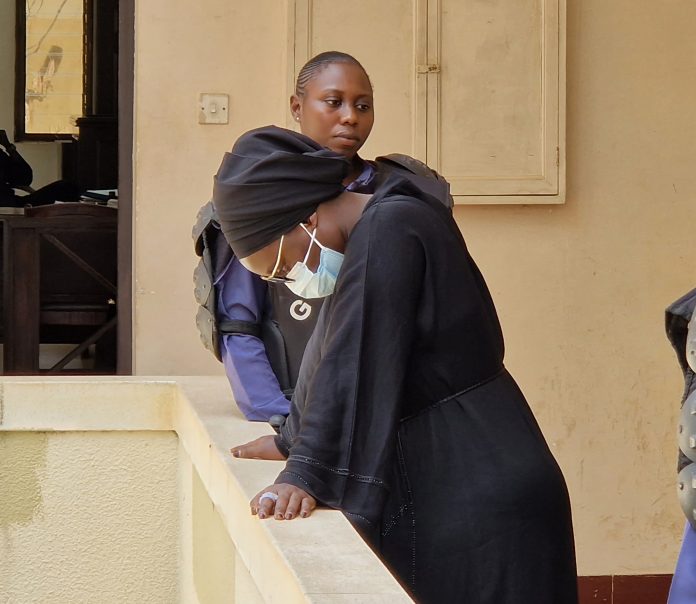By Kemeseng Sanneh (Kexx)
The High Court has ordered a suspension of proceedings in the ongoing murder trial of Kumba Sinyan, a case that has gripped national attention, pending a final decision from the country’s Supreme Court. The ruling, delivered by Justice Adenike J. Coker on Monday, granted the State’s request to halt the trial while the apex court considers a constitutional challenge to the application of longstanding judicial directives governing criminal procedure.
The State, represented by counsels R. Duanda and M. Sanyang, filed the motion on May 7 seeking to stay the trial until the Supreme Court rules on a writ invoking its original jurisdiction. At issue is whether specific provisions in the High Court’s Practice Directions — particularly Directions 5(3) of the 2023 Practice Direction and the 2019 Direction 1 issued under the Courts Act — should apply to the Sinyan case.
The procedural wrangling stems from an earlier judicial transfer. The case, initially assigned to Justice Sidi K. Jobarteh, was reallocated to Justice Coker by order of the Chief Justice. Defence counsel S. Twum, citing legal precedent, petitioned the new judge to declare a fresh start — a de novo trial. Justice Coker agreed, issuing a ruling on April 2, 2025, mandating that the case begin anew under the guidelines set forth in the Practice Directions.
The Attorney General’s Chambers responded swiftly, appealing that decision to the Supreme Court and filing a motion for a stay of proceedings in the High Court. They argued that resuming the trial de novo without first resolving the constitutional question risked wasting time, resources, and undermining procedural integrity.
In support of its application, the State submitted a seven-paragraph affidavit from Yassin Senghore, a clerk at the Attorney General’s Chambers, including two annexed exhibits. A reply affidavit from another legal clerk, Fatou Waggeh, comprised six paragraphs and three additional exhibits. The defence, in turn, relied on a five-paragraph affidavit in opposition deposed by Adama Cooper Jah, an administrative secretary in the chambers of S.C.T. Twum, with three attached documents.
At the heart of the legal dispute is a question with broader implications for The Gambia’s criminal justice system: should a transferred murder trial automatically restart under the existing Practice Directions, or can the High Court continue from where the previous judge left off?
Justice Coker acknowledged the weight of the decision. “The State’s challenge at the Supreme Court aims to test not only this specific ruling but the Practice Directions themselves,” she stated, underscoring the potential impact of the precedent to be set.
The judge noted that over 10 witnesses had already testified, with numerous exhibits tendered in the course of the earlier proceedings. Restarting the trial would require the State to reassemble witnesses and begin the process anew — a resource-intensive endeavor with uncertain finality, especially if the Supreme Court ultimately rules in the State’s favor.
Justice Coker reasoned that the balance of prejudice tilted toward the State. “Considering the principles guiding such applications, including the competency of the appeal, special and exceptional circumstances, and the balance of convenience, [the court] determined that the balance of prejudice lies in favour of the State,” she ruled.
She admitted the decision would result in further delay, noting the accused remains in custody on a capital charge. Still, she described it as an “unfortunate sacrifice the defence will have to make,” adding that judicial prudence requires the court to “avoid taking one step forward and two steps backward.”
“The stay is not intended to frustrate the course of justice but to preserve the integrity of its process,” Justice Coker said.
In conclusion, Justice Coker found the State’s application to have merit and formally granted a stay on all High Court proceedings related to the Kumba Sinyan murder trial. The case now awaits further direction from the Supreme Court, which will determine whether the trial can proceed afresh or continue from its prior stage — a decision that could have lasting effects on how complex criminal trials are handled in Gambian courts.
















